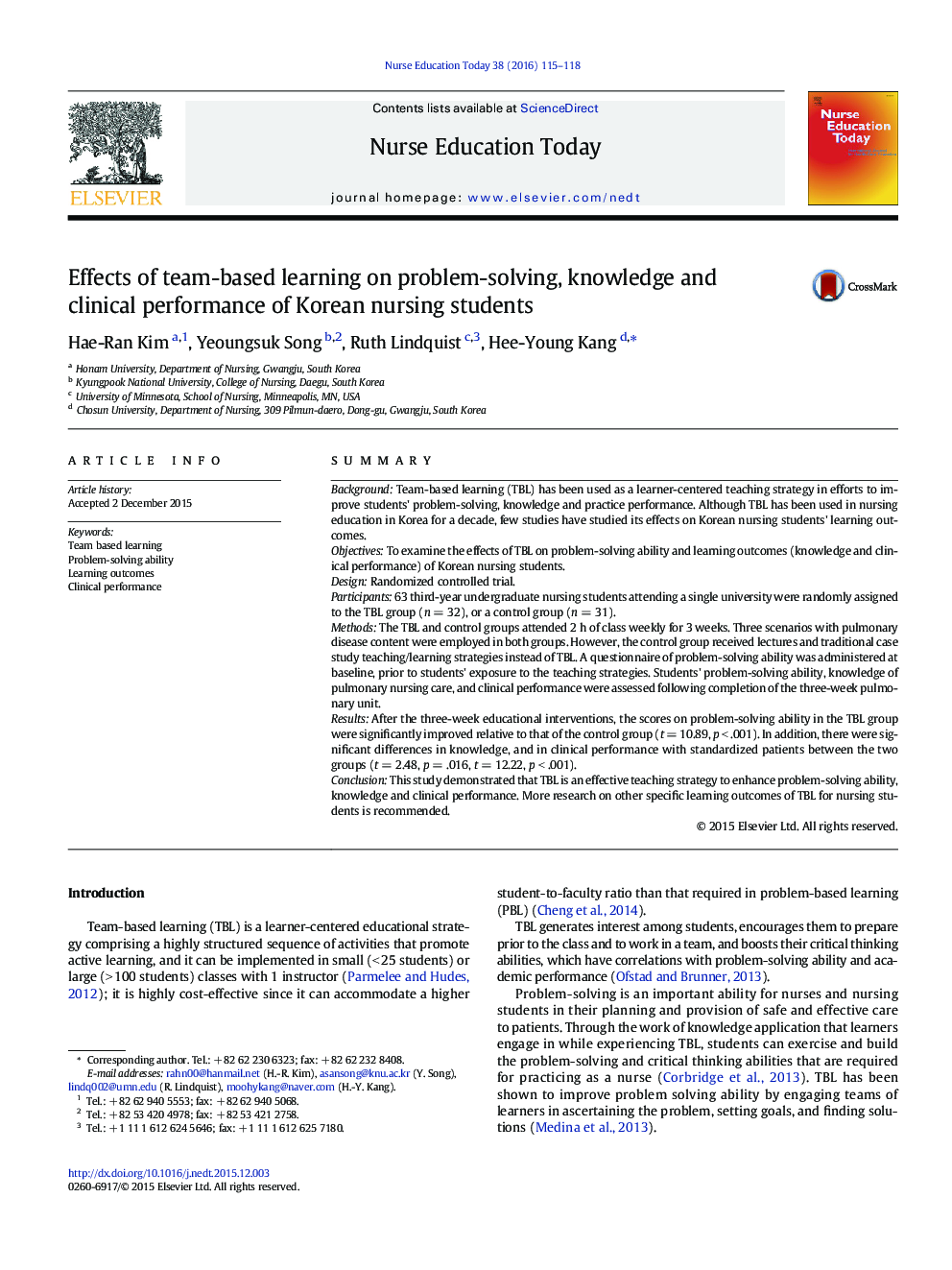| کد مقاله | کد نشریه | سال انتشار | مقاله انگلیسی | نسخه تمام متن |
|---|---|---|---|---|
| 367897 | 621549 | 2016 | 4 صفحه PDF | دانلود رایگان |
• The TBL program has improved students' problem-solving in nursing students.
• The TBL program is utilized to help increase nursing knowledge and clinical performance.
• The TBL is an effective teaching strategy to enhance learning outcomes for nursing students.
SummaryBackgroundTeam-based learning (TBL) has been used as a learner-centered teaching strategy in efforts to improve students' problem-solving, knowledge and practice performance. Although TBL has been used in nursing education in Korea for a decade, few studies have studied its effects on Korean nursing students' learning outcomes.ObjectivesTo examine the effects of TBL on problem-solving ability and learning outcomes (knowledge and clinical performance) of Korean nursing students.DesignRandomized controlled trial.Participants63 third-year undergraduate nursing students attending a single university were randomly assigned to the TBL group (n = 32), or a control group (n = 31).MethodsThe TBL and control groups attended 2 h of class weekly for 3 weeks. Three scenarios with pulmonary disease content were employed in both groups. However, the control group received lectures and traditional case study teaching/learning strategies instead of TBL. A questionnaire of problem-solving ability was administered at baseline, prior to students' exposure to the teaching strategies. Students' problem-solving ability, knowledge of pulmonary nursing care, and clinical performance were assessed following completion of the three-week pulmonary unit.ResultsAfter the three-week educational interventions, the scores on problem-solving ability in the TBL group were significantly improved relative to that of the control group (t = 10.89, p < .001). In addition, there were significant differences in knowledge, and in clinical performance with standardized patients between the two groups (t = 2.48, p = .016, t = 12.22, p < .001).ConclusionThis study demonstrated that TBL is an effective teaching strategy to enhance problem-solving ability, knowledge and clinical performance. More research on other specific learning outcomes of TBL for nursing students is recommended.
Journal: Nurse Education Today - Volume 38, March 2016, Pages 115–118
